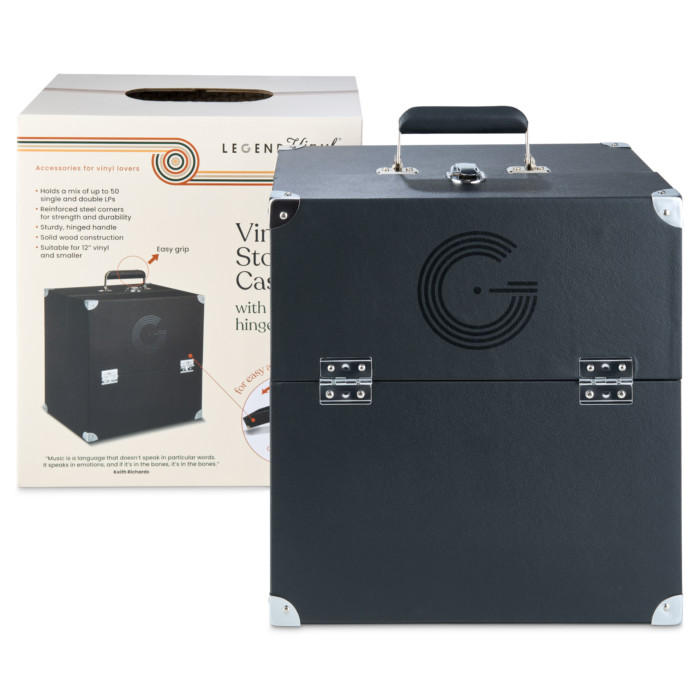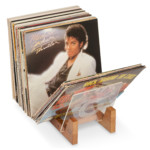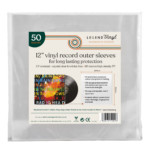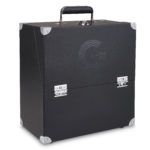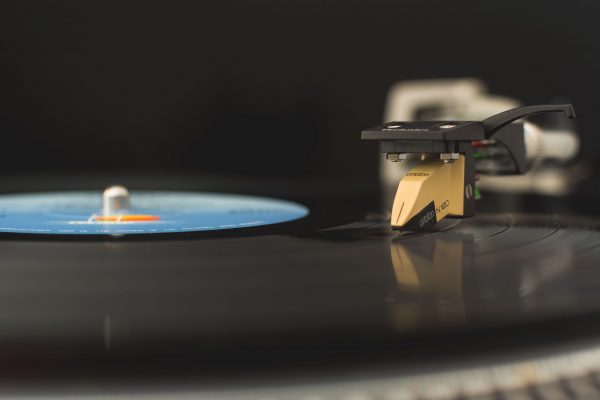
In the linguistic space of most hobbies there are certain phrases and terms that are swapped without much forethought. There are rarely hobbies for which this is the case more than vinyl record collecting, where the utterance of one word can mean another thing entirely.
This kind of linguistic interchange is especially evident for newcomers to collecting, prospective enthusiasts who have yet to learn the specific terminology and how it might be implemented in real world contexts. It is frankly confusing, and can often leave a bad taste in the mouth of a new collector, who feels like they are being excluded from an exclusive, cult-like society.
Vinyl record collecting is not so dissimilar in fact, excluding those elements that tend to get initiates in trouble with the law, unless of course you are talking about illegal raves and sound system culture. Many record collectors prize the exclusivity and rarity of the medium and are therefore overjoyed to meet other collectors like themselves. It is a democratized medium, for the consumer and often by the consumer, by its very antiquated nature.
So, it is the intention of this article to democratise the medium just that much more, helping those just starting out to understand vinyl LP meaning.
What Exactly is a Vinyl LP Meaning?
Very often, when a vinyl collector uses the term vinyl in this context, they are referring to the entirety of the medium, or the discs in particular. Literally, the reason for their being called vinyl is for having been constructed with the material vinyl, crude oil plastic fashioned into a disc shape.
In this way, the term vinyl can come to mean anything constructed with vinyl, though specifically the discs themselves in this context. It is quite common for buyers and sellers of vinyl records to simply referred to them as the pluralised vinyls, in this way cementing their relationship to the materials from which they are constructed in exchange with other buyers and sellers.
In addition to this, the term vinyl even comes to encompass the sleeves themselves, so when I say it represents the entire medium I mean the entire medium of vinyl records. This can certainly be a lot to take in if you are new to this often obsessive world of record and vinyl LP meaning, but I can assure you that it is far more intuitive than you might immediately perceive.
What is most interesting is the way that, even though vinyl as a material is used for plenty of other things besides the production of records, it has since become utterly synonymous with this musical format. The mere mention of vinyl will usually give anyone that you are conversing with an immediate idea of what it is that you are attempting to communicate.
LP Storage Case With Double Hinged Flaps
Unique folding front and back flaps for quick and easy access to your LPs Outer dimensions 37 x 3 x 23 cm will hold a mix of up to 50 single and double LPs Easy grip, sturdy handle supports up to 15kg – won’t buckle or break 5mm solid wood frame offers maximum protection for…
In stock
It is a miracle that vinyl records are even made still at all really, considering that one of their main materials is the oil extracted from crude oils and turned into plastic, which itself is difficult to do anything with after it has lived out its original life, other than upcycling of course.
So What are LPs?
This is where things get a little more complicated, because this term has also come to mean more or less the same thing in this context as the term vinyl. However, the linguistic root of the term LP has a rather different origin.
LP stands for Long Play, and such a term originates from the days when the vinyl record was just beginning to take off worldwide, though particularly throughout the western world. Originally recorded music came on 10 inch acetate discs that were played at 78 rpm (revolutions per minute). Since this did not leave very much space on the disc for music, recorded songs were shorter as a result.
With the dawn of the 12 inch disc on the more durable material vinyl, records were now able to play at 33 1/3 rpm, meaning that far more music could be fit on a disc of around the same size. Enough space, in fact, that Columbia boasted to fit whole movements of classical music on each side. Thus the Long Play record was born, giving a whole new vinyl LP meaning.
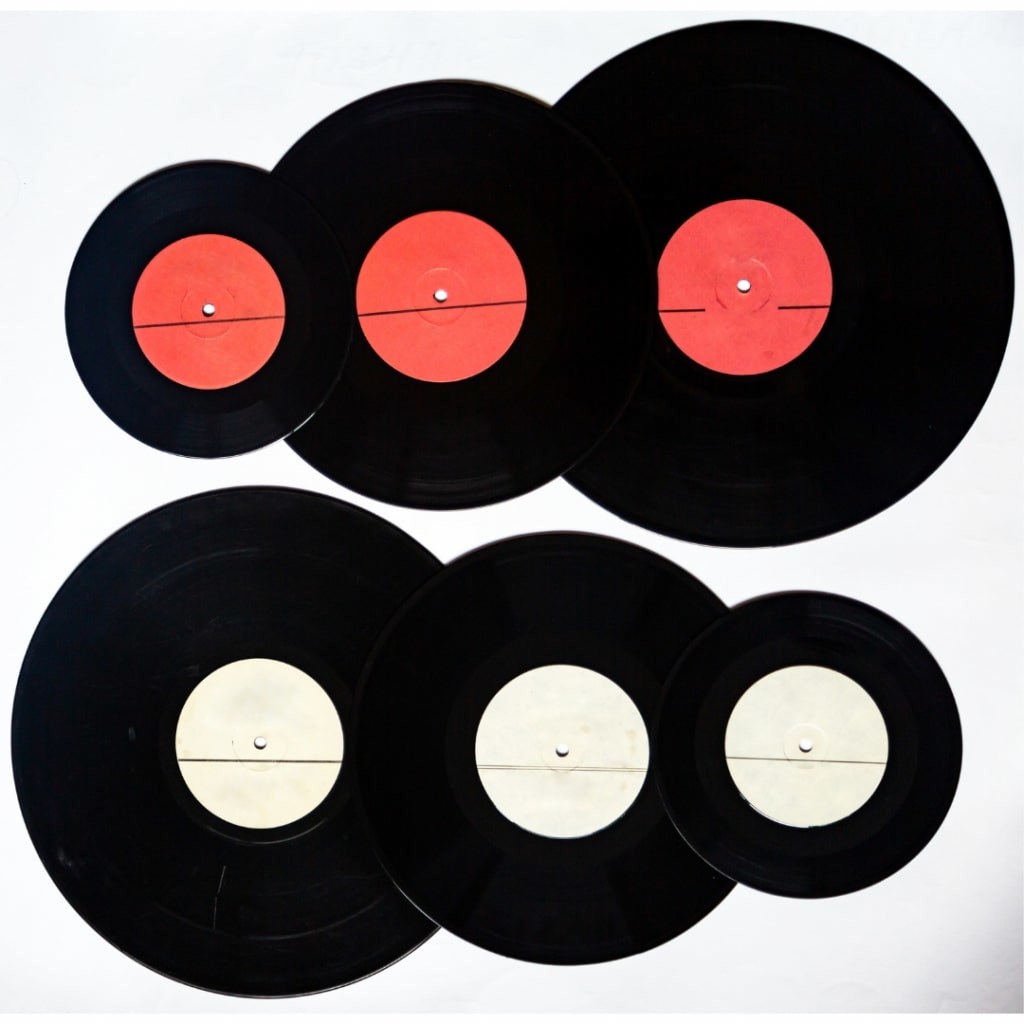
So, quite literally the LP or Long Playing record is simply referring to the amount of space to fill with music on a record of this variety. These Long Plays will almost always be 12 inches in diameter, to accommodate more music. Since these are often the most common size of record to encounter when in a record store or other record selling environment, it is not hard to see how the term LPs has come to refer simply to the medium itself, just like vinyl has.
While there are doubtlessly plenty of different shapes and sizes which a vinyl record can come in, plenty which have manufactured in response to the typical circle shape and the homogenous three sizes that typically abound in the mainstream of vinyl collecting, these three sizes remain omnipotent.
Final Tones
So, there you have it, a quick and, I hope, comprehensive guide to navigating vinyl LP meaning and the various guises and shapes and sizes this might mean.
If we take these three standard sizes – the 12 inch, the 10 inch and the 7 inch – and weigh them up with the rpm (revolutions per minute) that they typically run at, we can see that more often than not the larger a disc is the less rpm it is supposed to run at and vice versa.
There is an increasing trend for 12 inch records and the like to be mastered at half speed, meaning an overall better sound quality throughout the recording but also meaning that the record will need to be played at 45rpm. This is the case for newer pressings of Brian Eno’s Discreet Music which the listener will have to flip over at the halfway point to enjoy the whole eponymous ambient piece. So, anyone looking to listen to such recordings and bliss out is going to be at least a little peaved.
FAQs Vinyl LP Meaning
Within the context of buying and selling records, these terms are often used interchangeably to mean the same thing, so technically yes, they are the same. However, their linguistic roots come from different places entirely. Whereas vinyl originally referred to the material from which vinyl records are constructed, the term LP stands for Long Play and comes to mean the length of a particular album as represented by the size of the disc it is printed on and how fast it is played on a turntable. It is easy to see how these two terms have come to mean more or less the same thing.
These are terms that refer to the length of a particular project by an artist, neither of which has a technical definition but is defined by some sort of spectral parameters. An EP, or Extended Play, is a release typically 20 minutes long or less, that, compared to the more expansive LP, is considered simply a liminal statement between such larger statements. An LP, or Long Play, is inversely a longer record, anywhere from 30 minutes upwards, which by contrast to the 45 rpm single format is indeed a long player.
LPs, or Long Plays, are typically printed onto 12 inch vinyl discs. The reason for their being called LPs in the first place comes from this very format. Record labels like Columbia would boast that they could fit whole movements of classical music on single sides of 12 inch vinyl, so these discs or albums came to be known as Long Plays, in contrast with their far shorter 45 rpm single relatives. Because these discs are larger and are usually played at 33 1/3 rpm, they can thus fit far more music than these smaller 7 inch discs that are played faster at 45 rpm.
An LP means a Long Play record, a type of format on which music is printed if it exceeds the bounds of smaller formats like singles and EPs. Since the vinyl record was once the kingpin of musical formats, this term has since metamorphosed to mean something else in a vastly digital realm. Many who are more used to listening to music on vinyl records will use the term LP to mean an album. Likewise, those who will collect vinyl records will use the term simply to refer to records in general, so ubiquitous was the LP over other musical formats that it came to dominate the collective unconscious in this way. Such is the sway, the ebb and flow, of language and linguistics.

